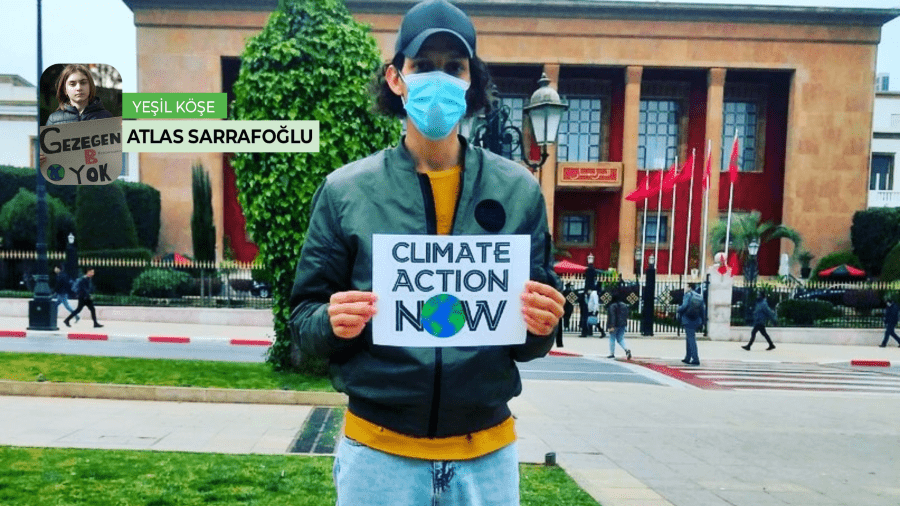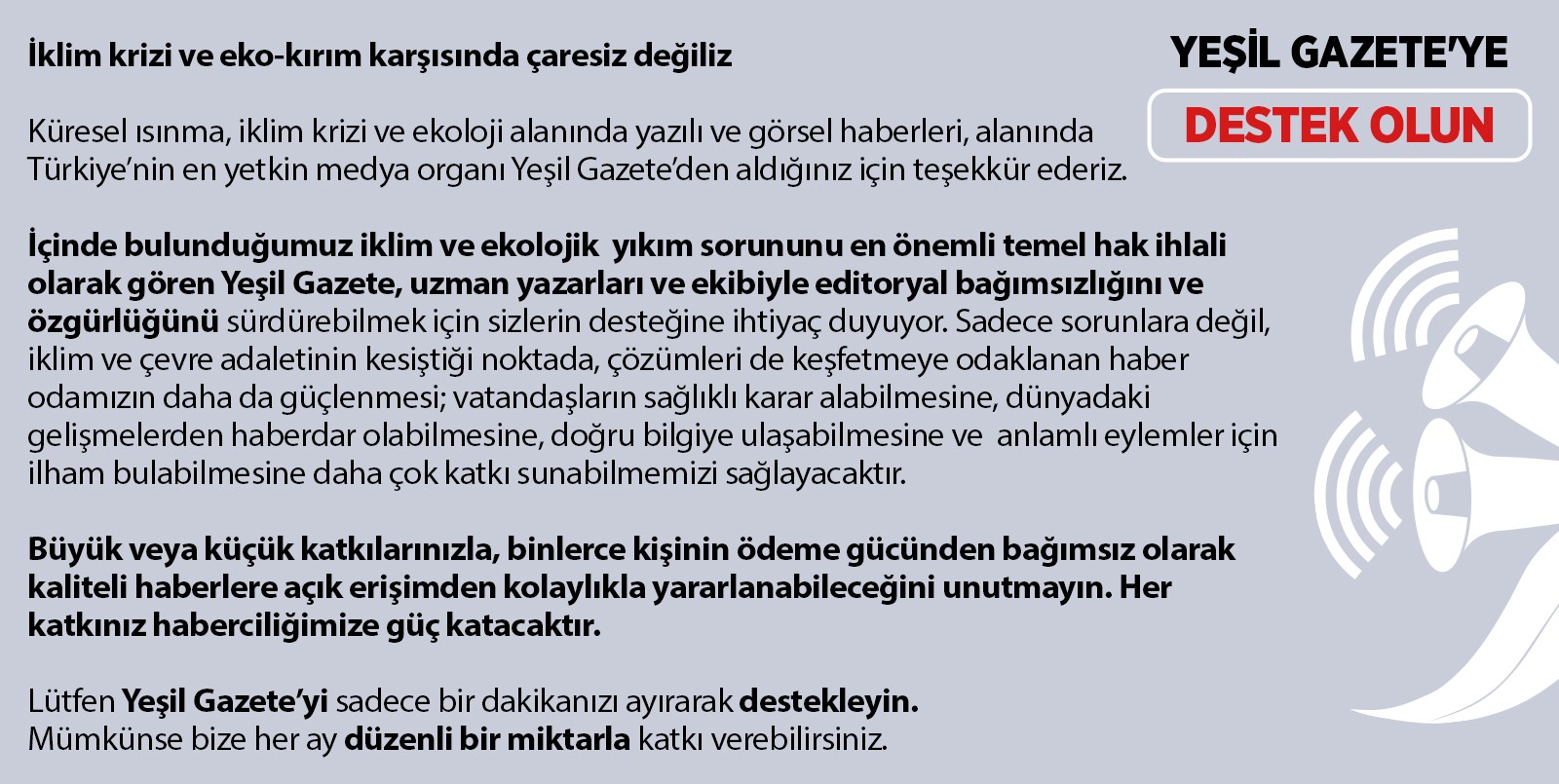Yassine Lembarki is a 30 year old Latino-African Arab, sharing both roots from the ancient Arabi Islamic culture of the Andalous (situated in modern day Spain) and the North African amazigh bedouin (berber nomads) culture. He is also neurodiverse because he’s on the spectrum.
He was born where he currently resides, Rabat the capital city and he says it is the most beautiful city of the Kingdom of Morocco. He’s a licensed physiotherapist, who also works as foreign language teacher as a leisure time activity and an income booster, teaching mostly English and Turkish. The best titles that describe his work regarding the climate should most certainly be an “anti-plastic pollution advocate” and “climate justice enthusiast”.
Atlas Sarrafoğlu: What are the major effects of the climate crisis in Morocco?
Yassine Lembarki: According to Morocco World News the major impacts of the climate crisis in Morocco like most of Africa is and will be higher temperatures, reduced rainfall and an increase in the severity of extreme weather events. With most of its economic activity near the coast, Morocco is particularly vulnerable to the rise of sea level, Which constitutes a real threat to agriculture, fishing, water supplies, tourism and the unique ecosystems of the country.
‘We stepped in when the government’s plastic plan didn’t work’
How did you start being involved in climate activism?
Like every activist I also had a unique reason to start this fight for a better future. But unlike them it wasn’t inaction from my local government that pushed me towards demanding change, totally the opposite, it was indeed their early decision to take drastic measures and its results that inspired me in a way or another.
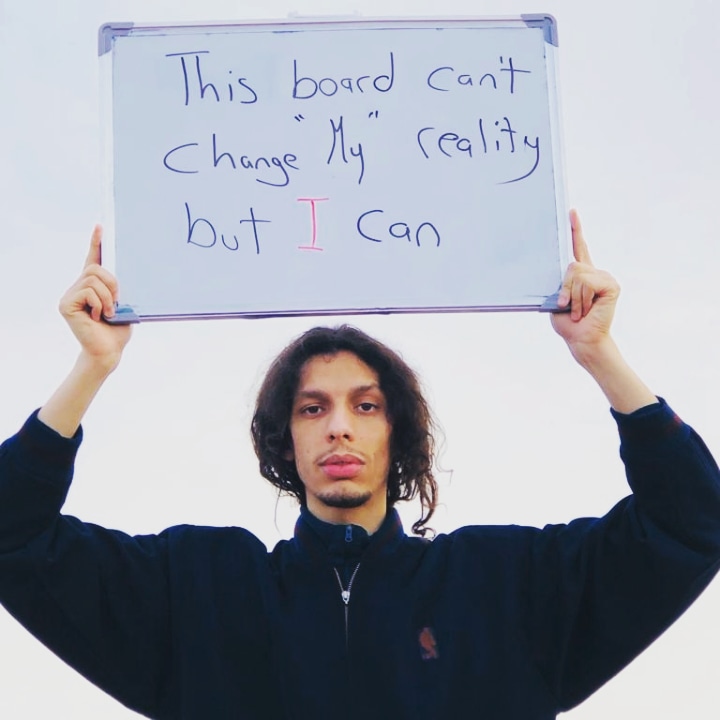
In July 1st, 2016 an ambitious plan to ban single-use plastic bags and reduce ocean pollution under the name of “Zero mika” (Mika is the equivalent of plastic in Moroccan Darija) was introduced, aiming to bring a radical solution to the plastic pollution in the country by prohibiting plastic bags within six months. After the publication of the corresponding law, and despite all the effort to make it a success, in the eyes of too many observers it failed to fulfill any of its goals, pushing the government to revise the law in 2019, and too many young Earth lovers such myself to anti-plastic advocacy and/or climate activism. This unprecedented measure to lower plastic pollution simply didn’t deliver on its promises because the people weren’t ready, and the government awareness campaign wasn’t appealing enough to ordinary citizens. That’s probably where an attentional inspiration of the new generation to take action for the environment happened, forcing too many young Moroccans including me, to understand that our voices are indeed needed in this fight, that policy makers even when galvanized to do the right thing, will not succeed unless the public is on board, that a no-plastic Morocco needs no-plastic citizens who feel responsible for the environment and our natural habitat. And since my family is more likely to give up plastic if I was the one requesting it, if my future depended on it, and also that is most likely to be the situation for almost all traditionnel Moroccan familles. Even an ordinary guy like me who knew nothing about the earth struggle other than whatever the “shower less” global campaign was saying at the moment, felt needed to raise awareness and facilitate the transition into a more green and by that I mean a more sustainable Morocco.
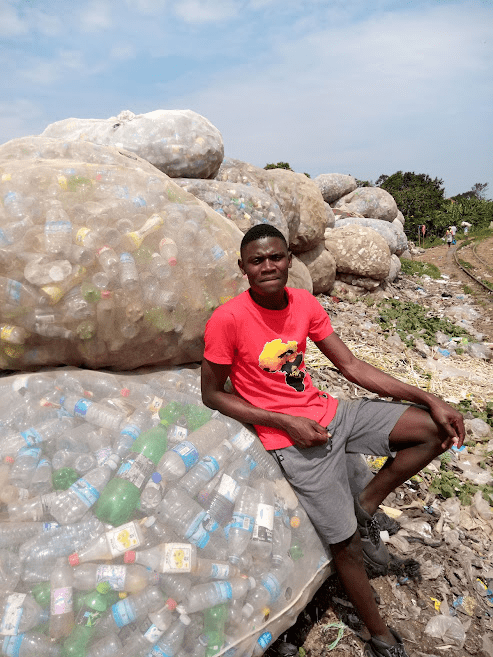
As simple as that and despite being in Türkiye at that moment for educational purposes, I decided to get on board and start advocating for climate literacy and alternatives for everyday used plastic, especially the single-use one. Being more likely an anti-plastic pollution advocate than anything else,and with my advocacy being mostly digital, I always felt intimidated from calling myself a climate activist, since activists in the traditional sense are supposed to take a realistic action, a physical one, a thing I didn’t have the time for, being a student at the moment, nor the right, being a foreigner at the time, and climate activists should address the entire issue of the climate crisis a thing I wasn’t will equipped to execute. I always felt more comfortable referring to myself as a climate justice “enthusiast”, not that I didn’t know how important the job I’m doing or didn’t believe in it, but it just felt more convenient especially when we take into consideration how middle easterners and Africans perceive the word “activist”.
How do you organize your strikes in Morocco, if at all? Do you personally have any other ways to fight the climate crisis?
Although striking is always an option, and it’s a given right that is enshrined in the constitution, and can be used in accordance with the corresponding laws. Where I am currently, at this moment, we do not need such an action, as the government commitment to the preservation of the environment is already enough when compared with the global action rate, and it’s being kept in checks and balances on this particular matter by specialized in different domains government agencies and NGOs, who in its turn contact the government when needed, to recommend or warn against a certain environmental or environment impacting decision. Striking is the step that comes after that, and since I started this journey it never was needed, but still happened sometime, mostly to motivate the public and keep policymakers on track.
‘Those most affected by the crisis lack minimal knowledge’
Instead what most of us, and by that I mean, climate activists/enthusiasts or environmentalists who are not part of an NGO or association do is try to change our small cercle to start with, than use that power to motivate others to do the same, also volunteer for all possible activities within our respective interest and general interest, we also enjoy the support and/or supporting a wide range of global and local communities and organisations, through chatting their stories and experiences, joining their real or digital events, we also tell our unique stories and try to add to do global diverse consensus for a better future via digital means.
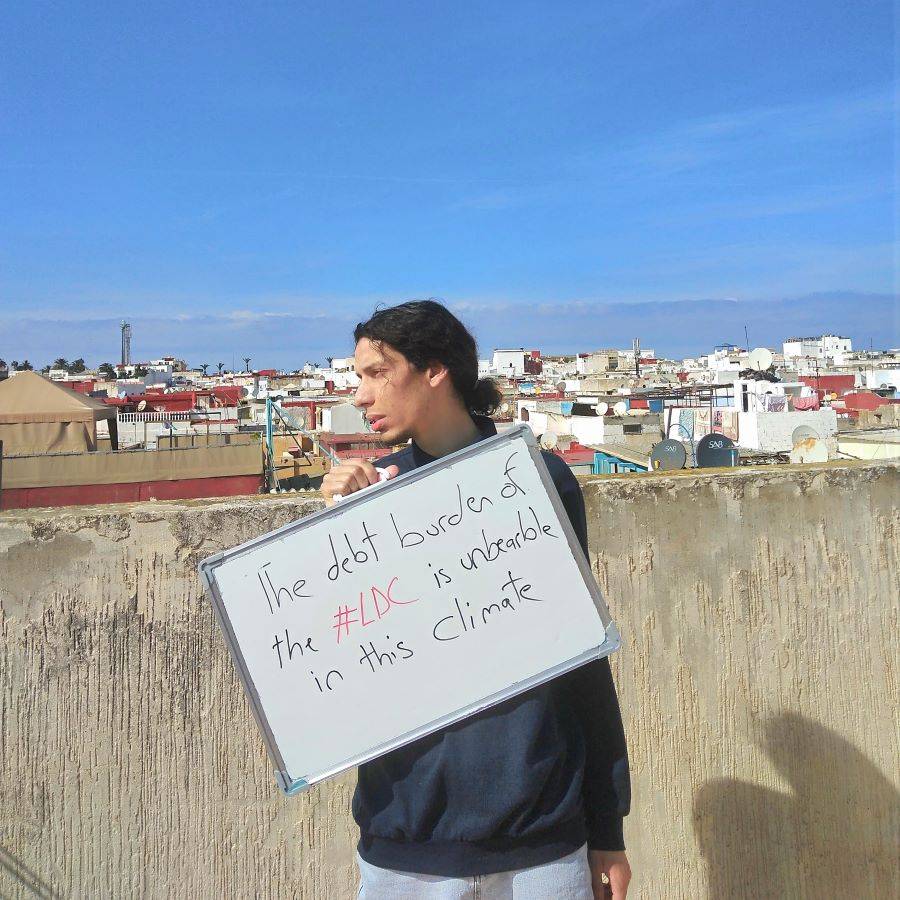
What I do personally other than the ones stated above, is mainly acting for a plastic free environment, by collecting plastic while tracking an advising people against its use, I was the proudest person in the world when my house was finally plastic free after a whole 3 years of trying relentlessly to promote alternatives and push plastic products (especially single used ones) out of the equation, an experience that taught me how changing people’s behaviour is so hard but not impossible.
Also I go to different places every time with my now famous chalkboard, every Friday to take pictures in solidarity with the youth-led action group Fridays For Future, while also answering to the curious looks and questions of the wandering public, to promote sustainability and climate consciousness. But my main domain should be digital media, as I’m the founder of the climate literacy page @Plus212youth on twitter and Instagram, a page that promotes the perspective of climate justice in Arabic, Turkish and English,being mainly for Moroccans,the MENA and Africa. And the reason behind this idea, was the fact that after spending some months in this generous community,I noticed that there was a problem with the global climate justice activism at that time, the fact that it was and somehow still mostly monolingual which doesn’t give people with little or no knowledge of English the chance of knowing what’s going on around them. Which is very unfair, cause It’s unfair for the most affected people to be left without the minimum knowledge of what they may suffer or the causes of what they are already suffering, knowing that like with the climate crisis, the lack of sufficient education and other essential services is mostly not MAPA‘s fault as well.
What is the perception of your government regarding the climate crisis?
Since a while now and through successive governments Morocco have been on an ambitious ride to combat the adverse effects of climate change. It’s even possible to say that Morocco was one of the first countries to develop a climate change strategy and action plan, with its National Plan Against Global Warming (PNLCRC,2009). It also has ratified a number of international climate agreements for the same reason. Also was happily the generous host of COP22, Although the execution of those plans is not nearly perfect and it’s necessarily having some challenges, thanks to its climate policy for the past years, Morocco has become a key leader on initiatives for climate action, According to the UN Resident Coordinator.
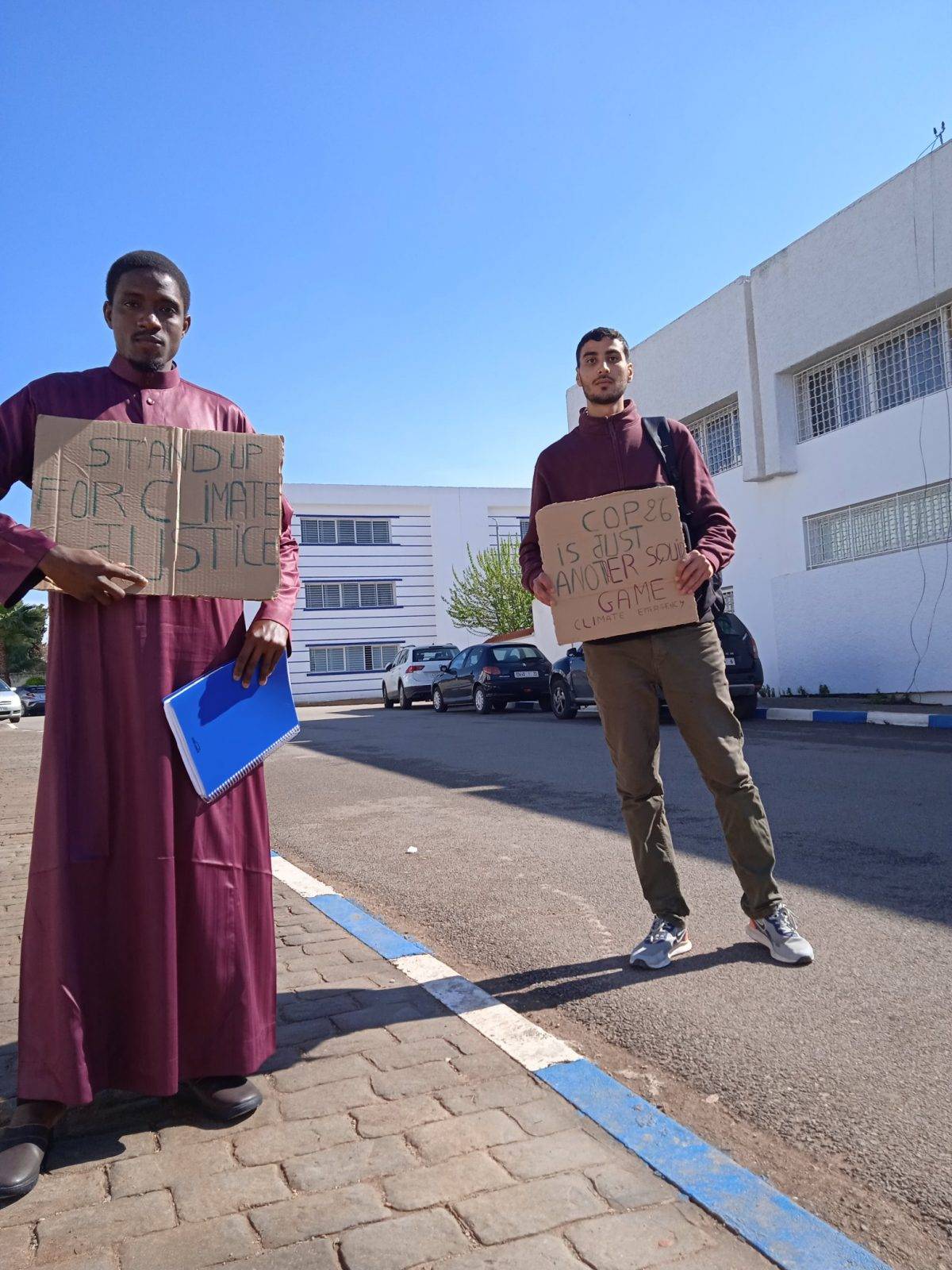
Through an ambitious greenhouse gas emissions reduction programme and strategies for the preservation of natural resources, Morocco intends to reduce its greenhouse gas emissions by 45.5 per cent by 2030 and achieve a 52 per cent share of renewable energy in its energy mix in the same year. While that may not seem like too much, we should not forget that despite not having a significant contribution to the climate crisis, like the entire continent of Africa, Morocco is currently one of the few nations with a nationally determined contribution (NDC) in line with the global target of 1.5°C. Which is a good indicator of what is to come.
As a Moroccan climate activist, what are your demands from your government/politicians?
I can summarize what I want from policy makers in five sentences, and no more.
- less coal, and more renewables
- less plastic, and more recyclables
- less cars, and more environment friendly public transportation
- less disputes, and more collective action
- and more involvement of the people and youth in the entire process.
‘Climate crisis is a daily problem in Africa’
What specific climate crisis is the most important issue in your country? And also please tell us what does it mean to be a MAPA for you?
Though it’s disputable, in the eyes of too many climate observers and mine, the number one problem affecting Morocco is desertification and every other problem tumbles into place from there, the increased salinization of the soil in Morocco has led to increase of irrigation and further depletion of water resources that has then led to the drying of wetlands, displacement of animals and loss of biodiversity in a country that has many rich ecosystems. Adding to all of that the harvesting of heavy metals out of economical necessities, exacerbates this problem by contaminating water sources and causing land erosion.
To me being part of MAPA means, being punished for a sin you didn’t commit, and worse than the one who committed it. It also feels like living in the future. The best version possible in this chaotic climate crisis, As Hamira Kobusingye a youth activist from Uganda, said “For the global north, climate is a matter of 20 years, 30 years into the future, But for us in Africa, it is a problem today. We are already losing lives due to climate change and we already have refugees and people forced from their homes due to climate change.”
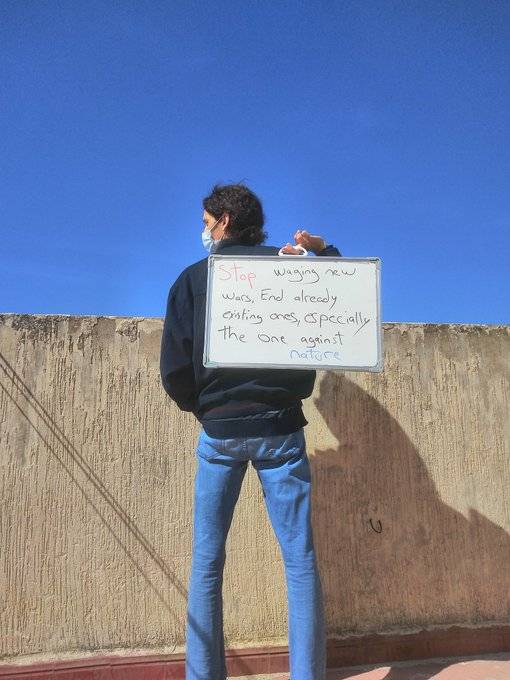
Besides being part of MAPA, being particularly from Africa makes one see this climate injustice in a wider picture. According to the United Nations Fact sheets on climate change, Africa is not a significant source of greenhouse gas emissions. Africa accounts for only 4 percent of the world’s carbon dioxide emissions from energy and industrial sources, yet it’s the most vulnerable continent to the climate crisis, and most likely to suffer the worst of it in the world.
Please tell us about what it is that makes you feel hopeful about the future? Do you have any inspirations for your activism?
My inspiration in life and what makes me feel so hopeful about the future is not different from each other, it’s mostly the same feeling, faith. The faith I inherited from my ancestors as most indigenous people of Africa do, it’s no hidden secret that we are one hell of a faithful continent. It’s that same mystical faith in a higher power, a life giving energy that is looking after the children of Africa and its beautiful nature, the one that will always step in to save us, even when we make it so hard to be saved, simply because he is capable of anything and everything. The faith in the miracle that we call life, the capability of it to change very fast to the better, the faith in the nouvelle generation of human giants that are leading the change globally, with no fear and no gear other than their little big hearts. We are indeed living in consequential times that could be better described as the worst era of mankind, but it’s also maybe the best era for humanity, for humanity only thrives in darkest time, cause it was meant to be a light to guide its carriers, like in the example with the divisive Berlin Wall and too many other historical events, whenever we are put under unwavering pressure unlike or body cells that divides we seem to come together and act as one. I know it’s a classical thing to say, but whenever I hear the following sentence I feel full of hope, “don’t stop believing”.
‘We progressed so fast the planet couldn’t keep up with us’
If you had a microphone to address the world leaders, what would you say to them about the climate crisis?
I believe if I had one or a thousand microphones, I would not say more than the following statement.
Your inaction is leading to extinction, our extinction, but before us, the bees, the trees, the wonderful creatures of the seven skies and the seven seas. You are only what you aspire to be, and you can’t be, without the tree, without the bee, without the air, and without the sea, you can’t continue to exist without me, without diversity. Choose collective action over collective extinction, choose the priceless people over the cheap profit.
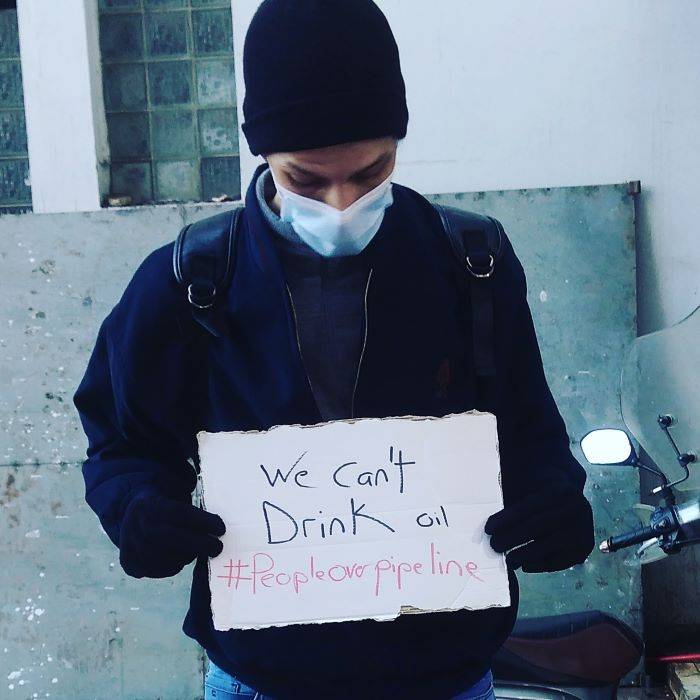
What is your perception of the future in regards to the climate crisis? How do you envision yourself in 2030?
I have high hopes regarding the future, both on a regional and global scale.
On a regional scale thanks to the much needed and the seemingly very realistic Moroccan vision of 2030, to half greenhouse gas emissions and provide more than half of its energy from renewables, add to the mixt the growing attention of the public towards this particular matter as the threat grows, and you will conclude that there bound to be more ambitious plans and more people that are willing to support and help execute them.
On a global scale cause I believe the climate movement has gained momentum worldwide, and is shaping the public view in a positive way, pushing it to be more climate conscious, despite the deceiving efforts of what we came to know as “white activisme” , this youthful impact most certainly will lead to radical changes in our behaviour as a species and our over all view of other species and the universe as an integrity. It’s a common belief among climate literate youth that this decade may indeed be the last decade to take drastic measures to mitigate the climate crisis before we face irreversible consequences, so like a lazy student who only starts to prepare the day before the exam, if we can convince humankind that tomorrow is indeed the day of the exam, our survival exam as an intelligent species, they will most certainly prepare. Though I know how lazy and unwilling to change mankind may look, make no mistakes we are no dummies, we are the most intellectual creatures to ever put a foot on this planet or on any other place in the universe. And if anyone needs any evidence about that, it will be sufficient for them to look around and see what the planet has become. All of this destruction didn’t happen because we couldn’t develop or progress, totally the opposite, it happened because we progressed so fast the planet couldn’t keep up with us. Climate change is the unintended consequence of our success as a species. We’re literally killing it, “it” being of course our mother, our only home, earth. So in short, we should trust that the ones that have the will to torch the planet apart most certainly can fix it.
When it comes to how I envision myself in the near future (by 2030ish), I see myself as one of the decision makers regarding the sustainability and preservation of the planet both locally and internationally, so let’s just cross fingers and hope for the best, cause the best is yet to come.
Social media accounts:
(twitter): @physiolmy
(instagram): @physiolmy

